
细胞生物学 Ccll Biology Cell biology
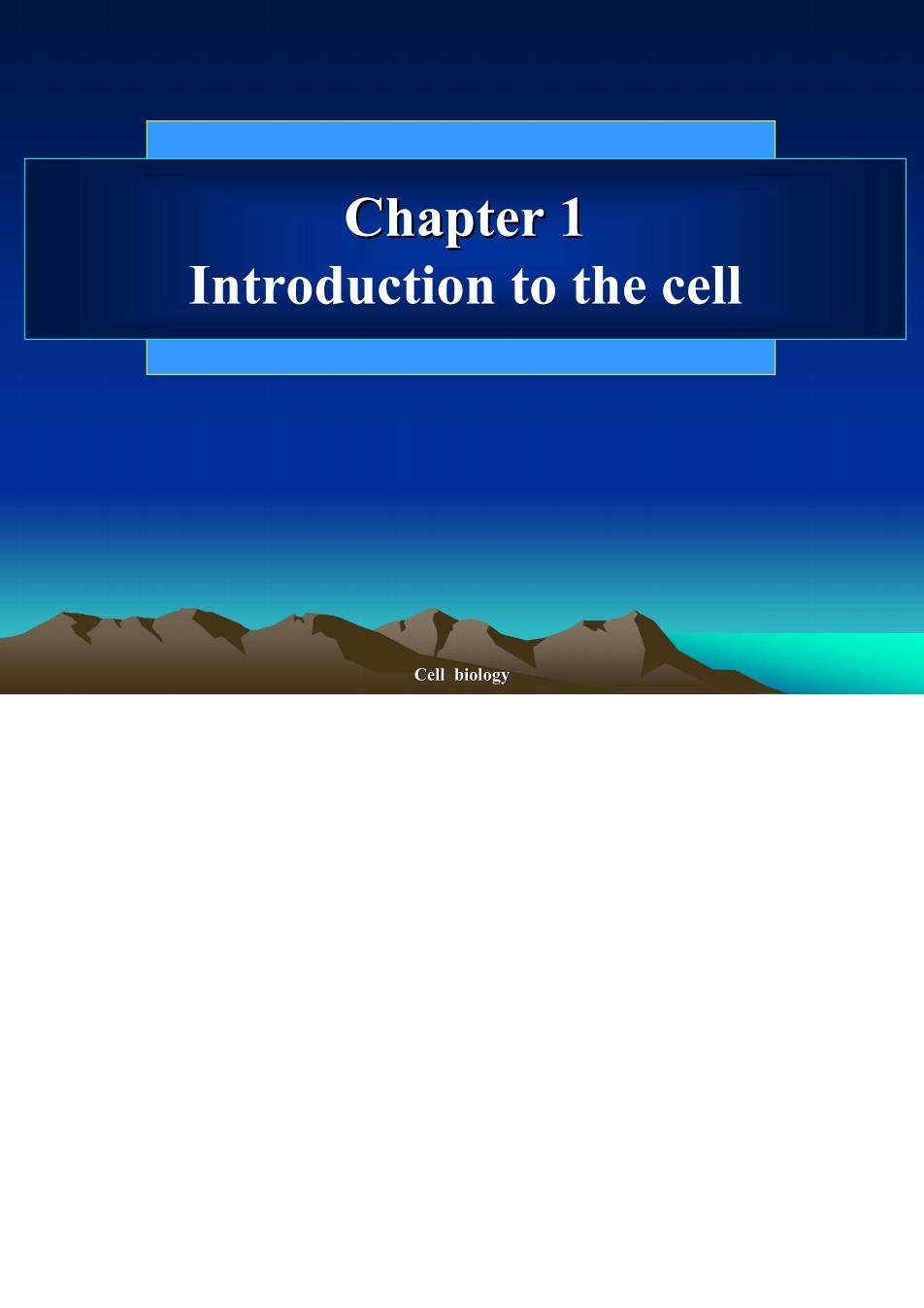
Chapter 1 Introduction to the cell Cell biology
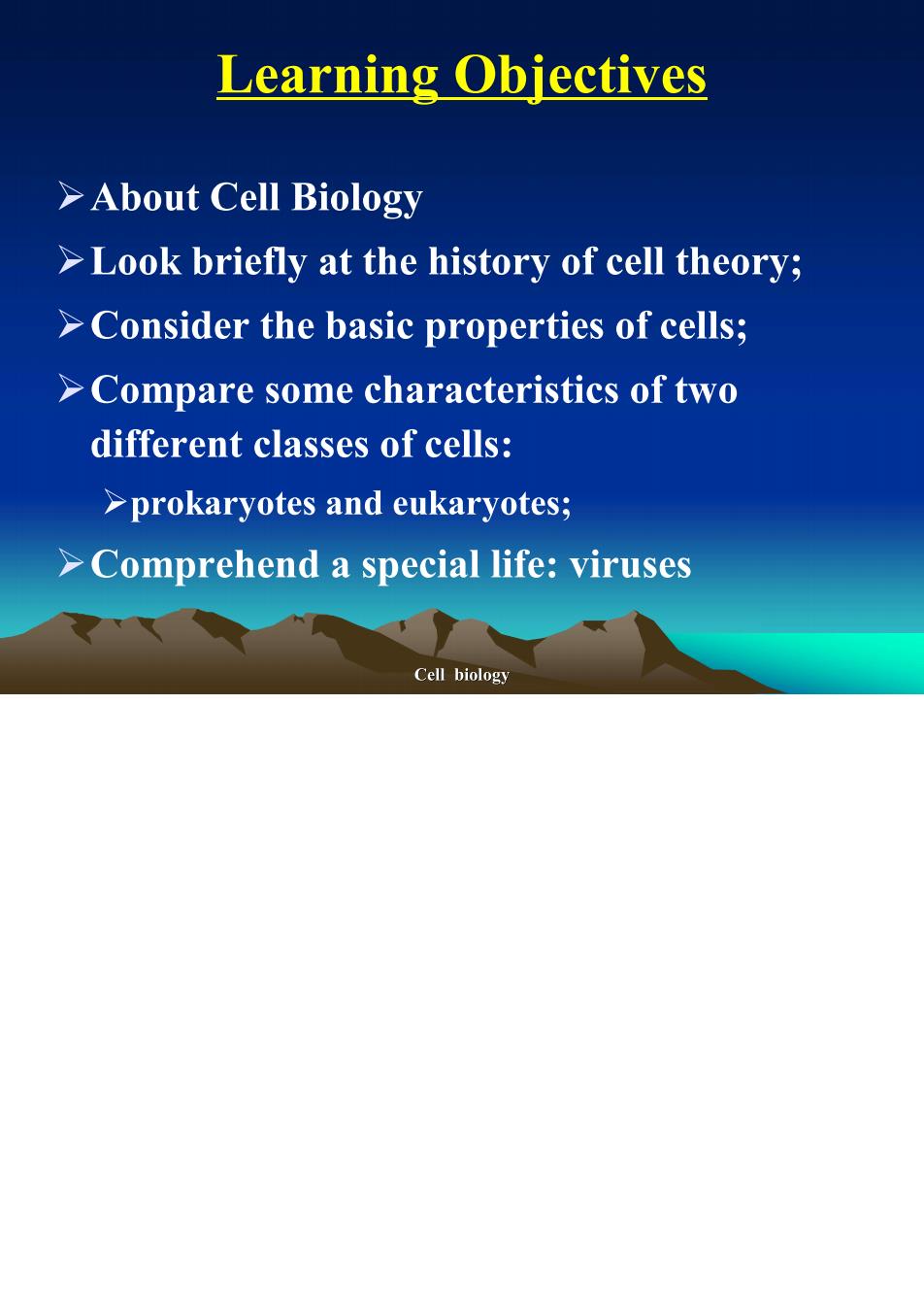
Learning Objectives >About Cell Biology Look briefly at the history of cell theory; Consider the basic properties of cells; >Compare some characteristics of two different classes of cells: >prokaryotes and eukaryotes; >Comprehend a special life:viruses Cell biology
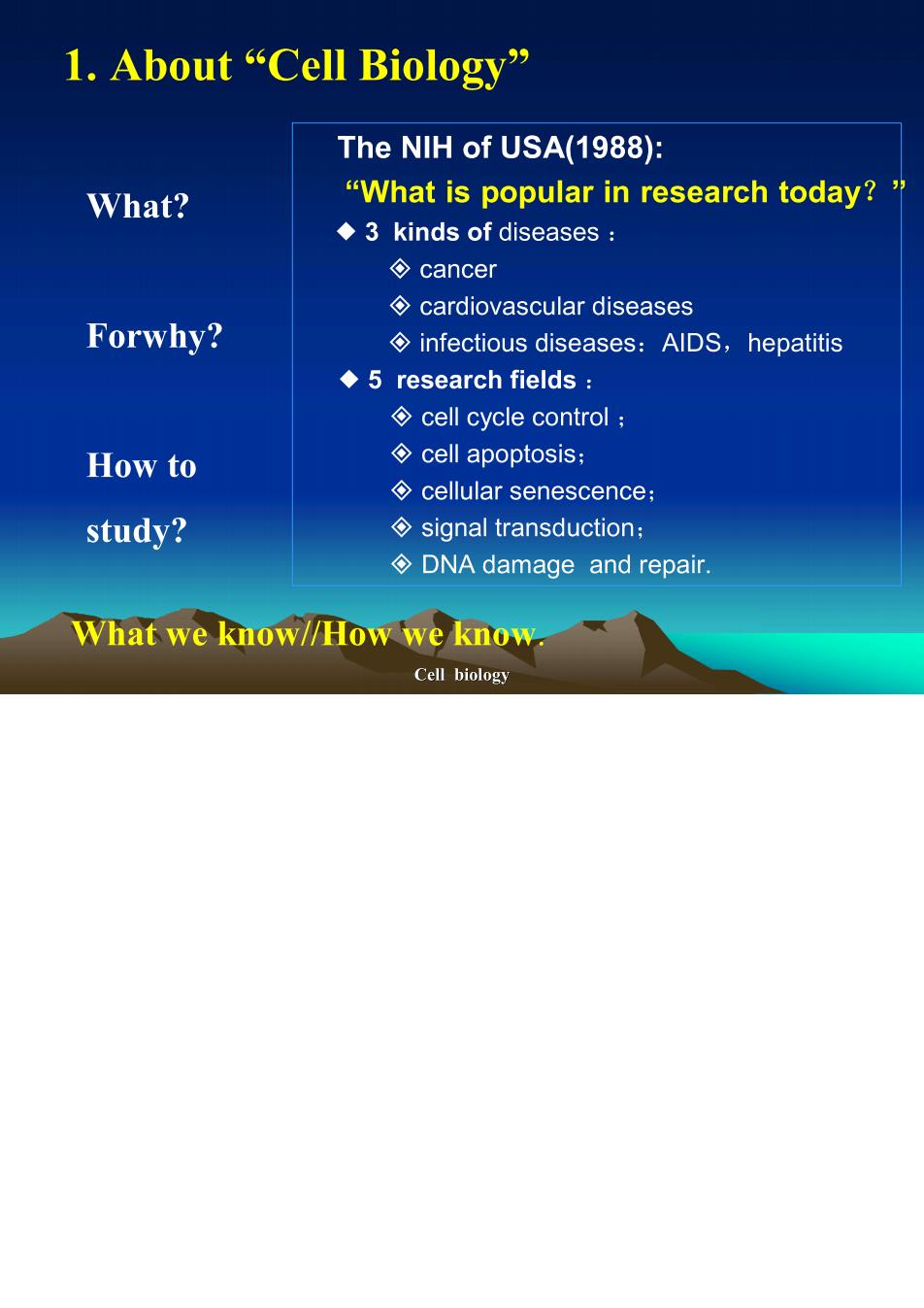
1.About "Cell Biology” The NIH of USA(1988): What? "What is popular in research today? ◆3 kinds of diseases: ◇cancer cardiovascular diseases Forwhy? infectious diseases:AlDS,hepatitis ◆5 research fields: ◇cell cycle control: How to ◇cell apoptosis: ◇cellular senescence study? signal transduction; DNA damage and repair. What we know//How we know. Cell biology
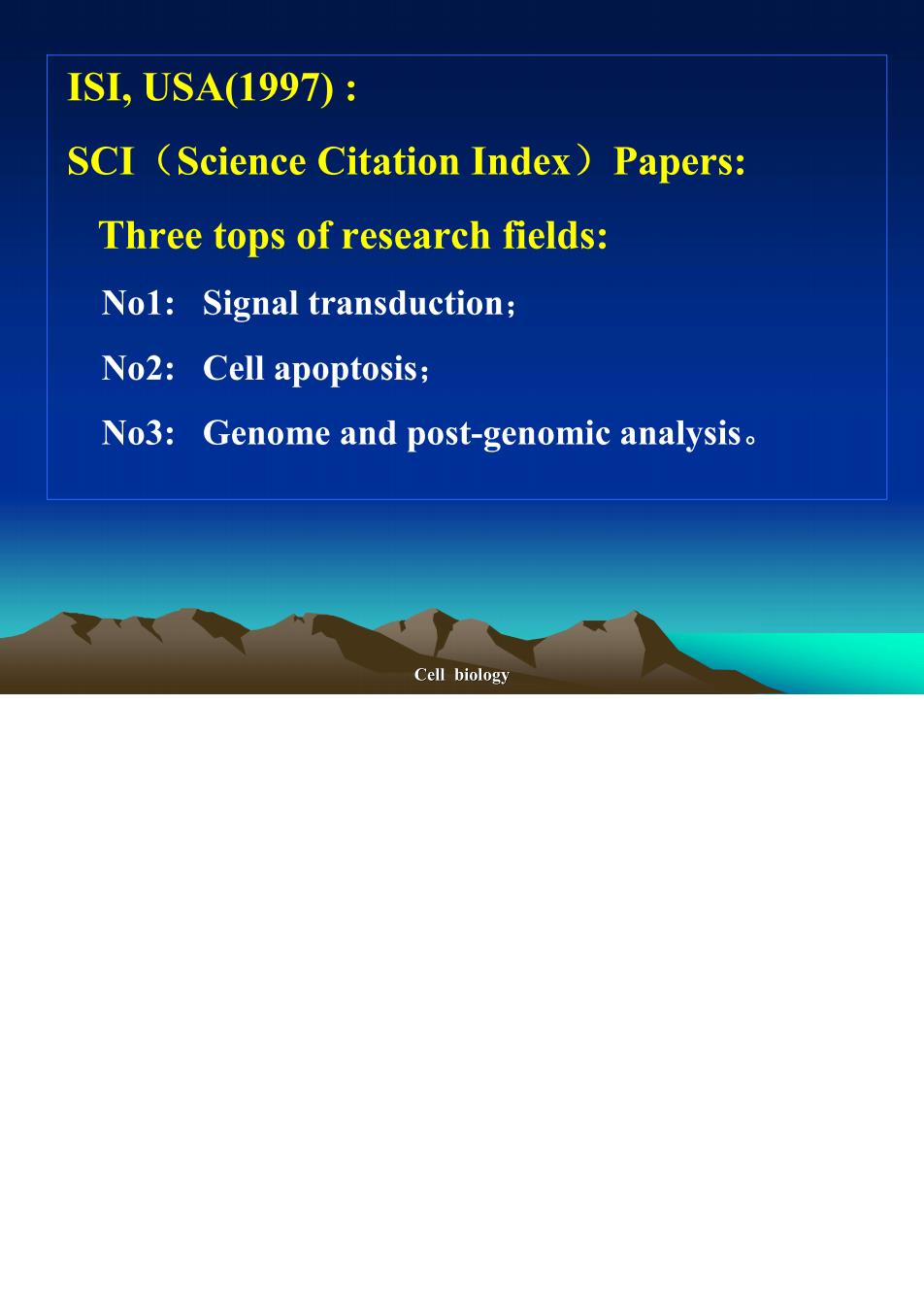
ISI,USA(1997): SCI (Science Citation Index)Papers: Three tops of research fields: Nol:Signal transduction; No2:Cell apoptosis; No3:Genome and post-genomic analysis. Cell biology
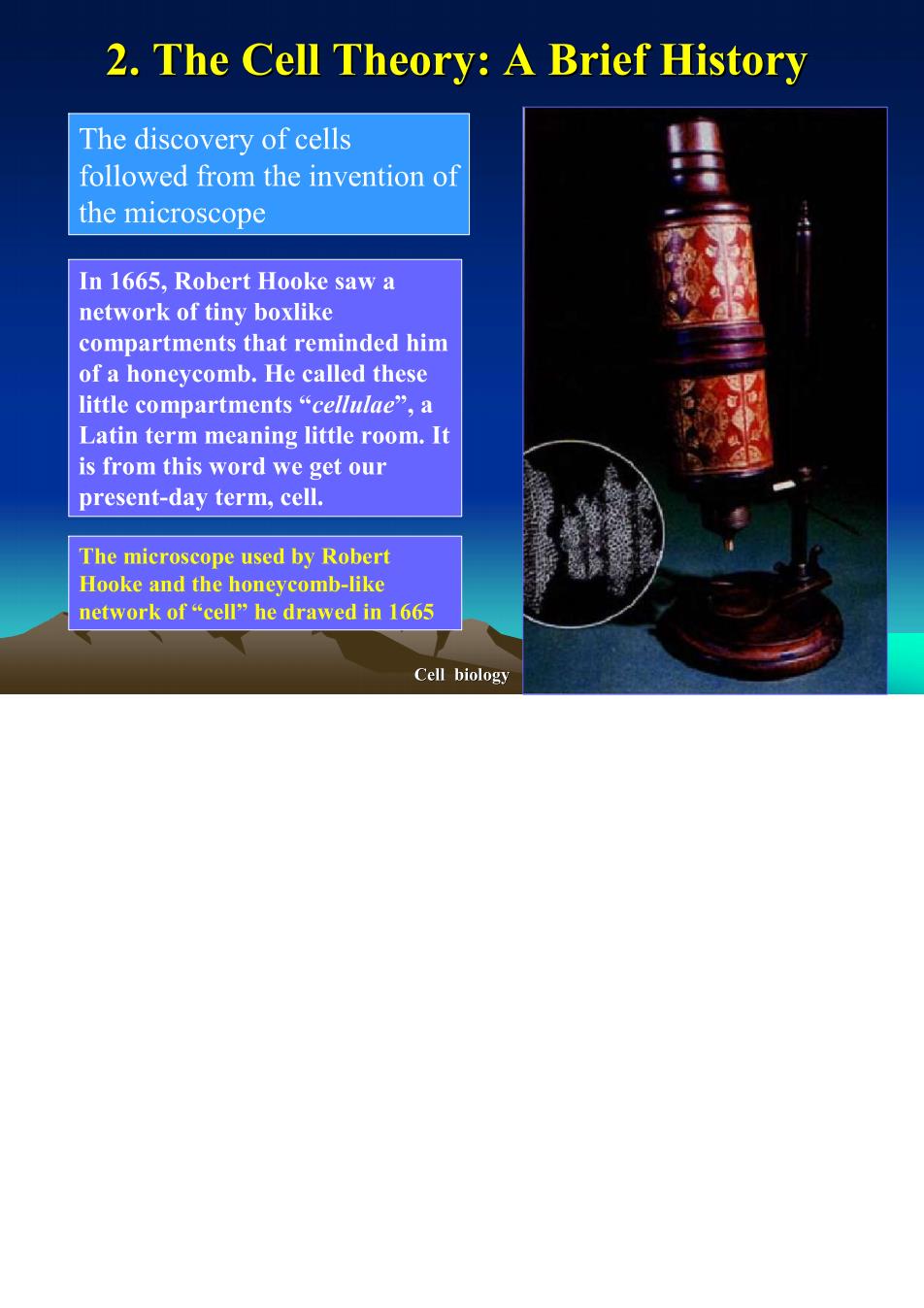
2.The Cell Theory:A Brief History The discovery of cells followed from the invention of the microscope In 1665,Robert Hooke saw a network of tiny boxlike compartments that reminded him of a honeycomb.He called these little compartments“cellulae”,a Latin term meaning little room.It is from this word we get our present-day term,cell. The microscope used by Robert Hooke and the honeycomb-like network of "cell"he drawed in 1665 Cell biology
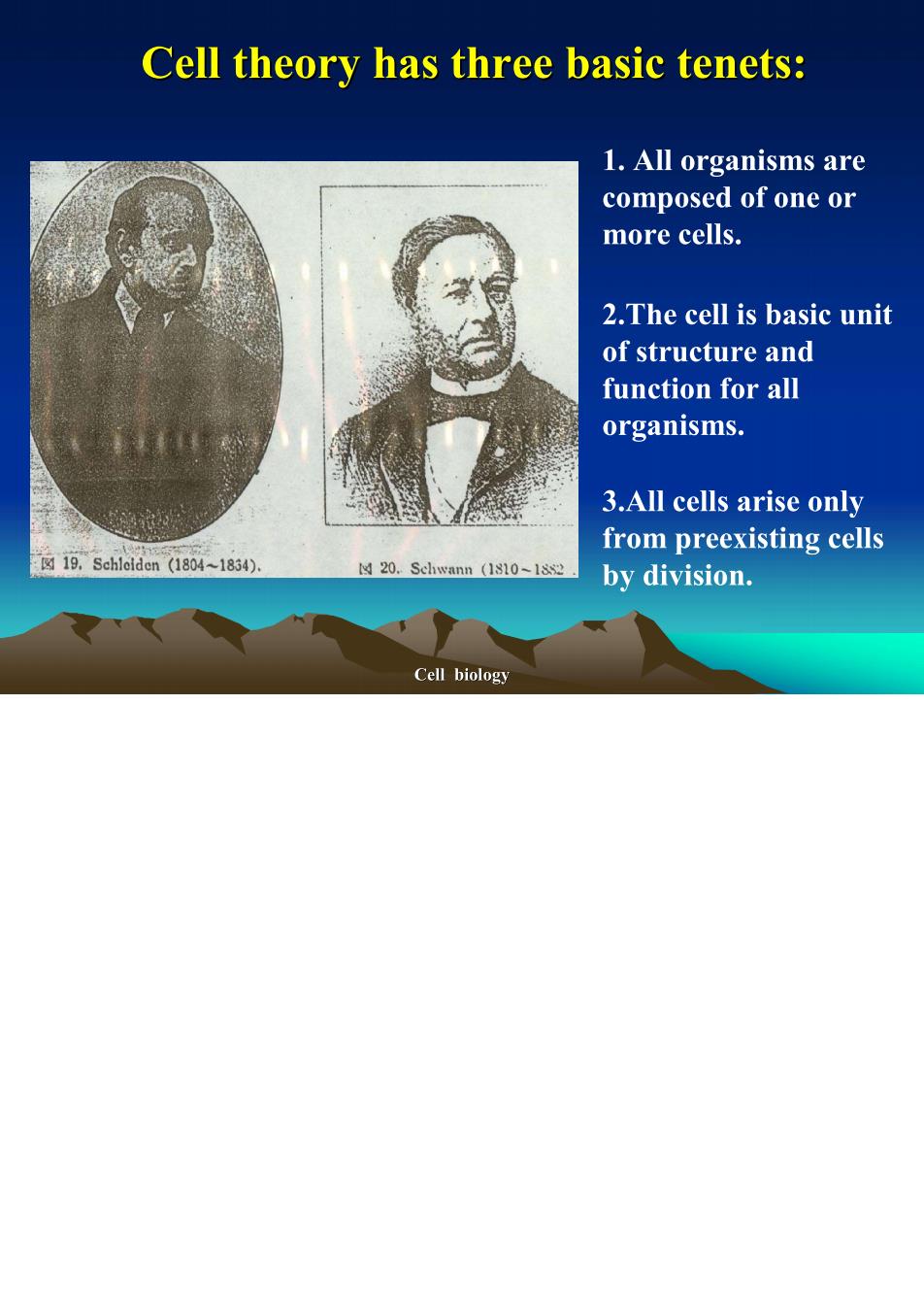
Cell theory has three basic tenets: 1.All organisms are composed of one or more cells. 2.The cell is basic unit of structure and function for all organisms. 3.All cells arise only from preexisting cells ☒19.sch1o1dcn(1804-1834) 4 20.Sehwann (1810-1852 by division. Cell biology
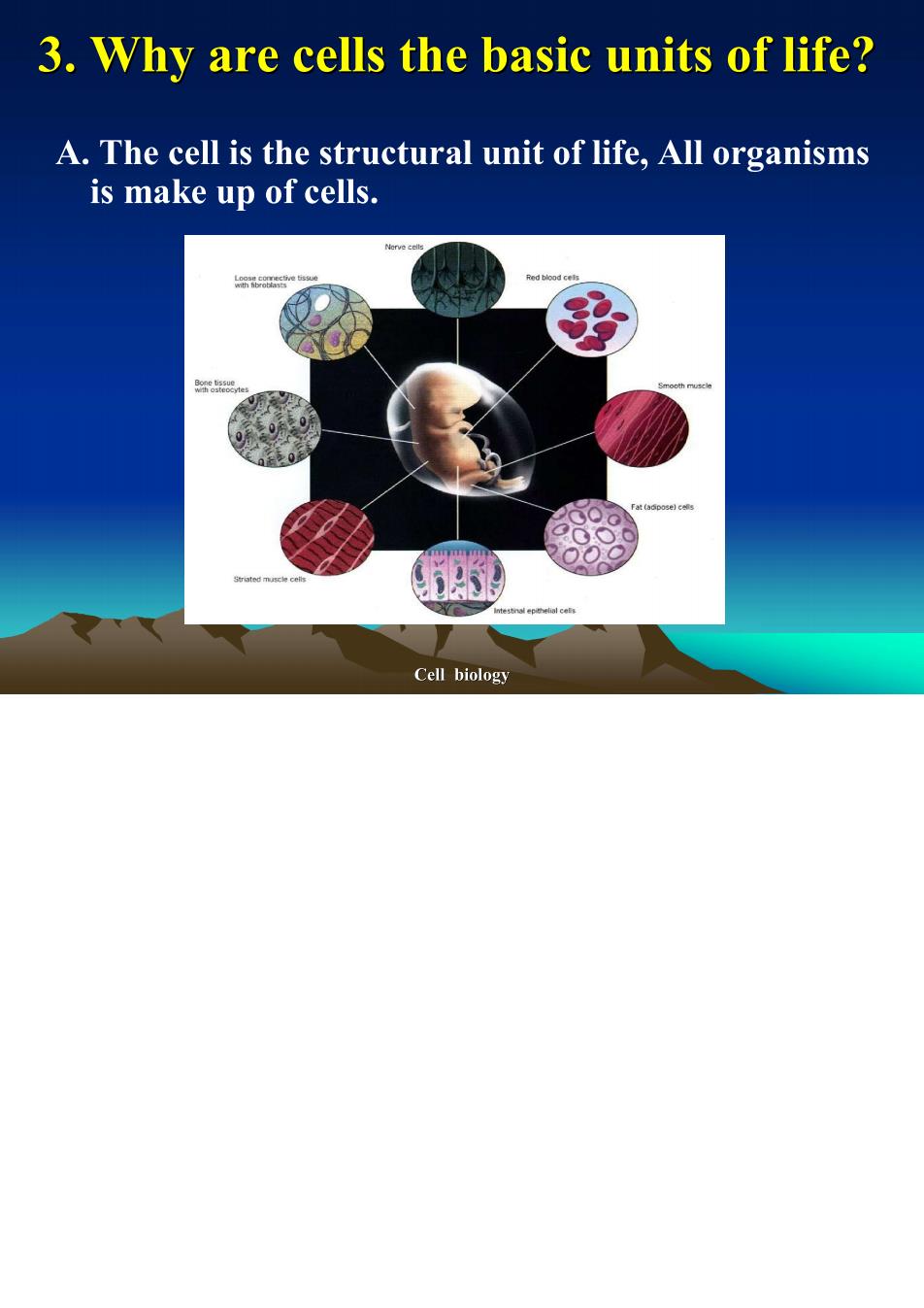
3.Why are cells the basic units of life? A.The cell is the structural unit of life,All organisms is make up of cells. Cell biology
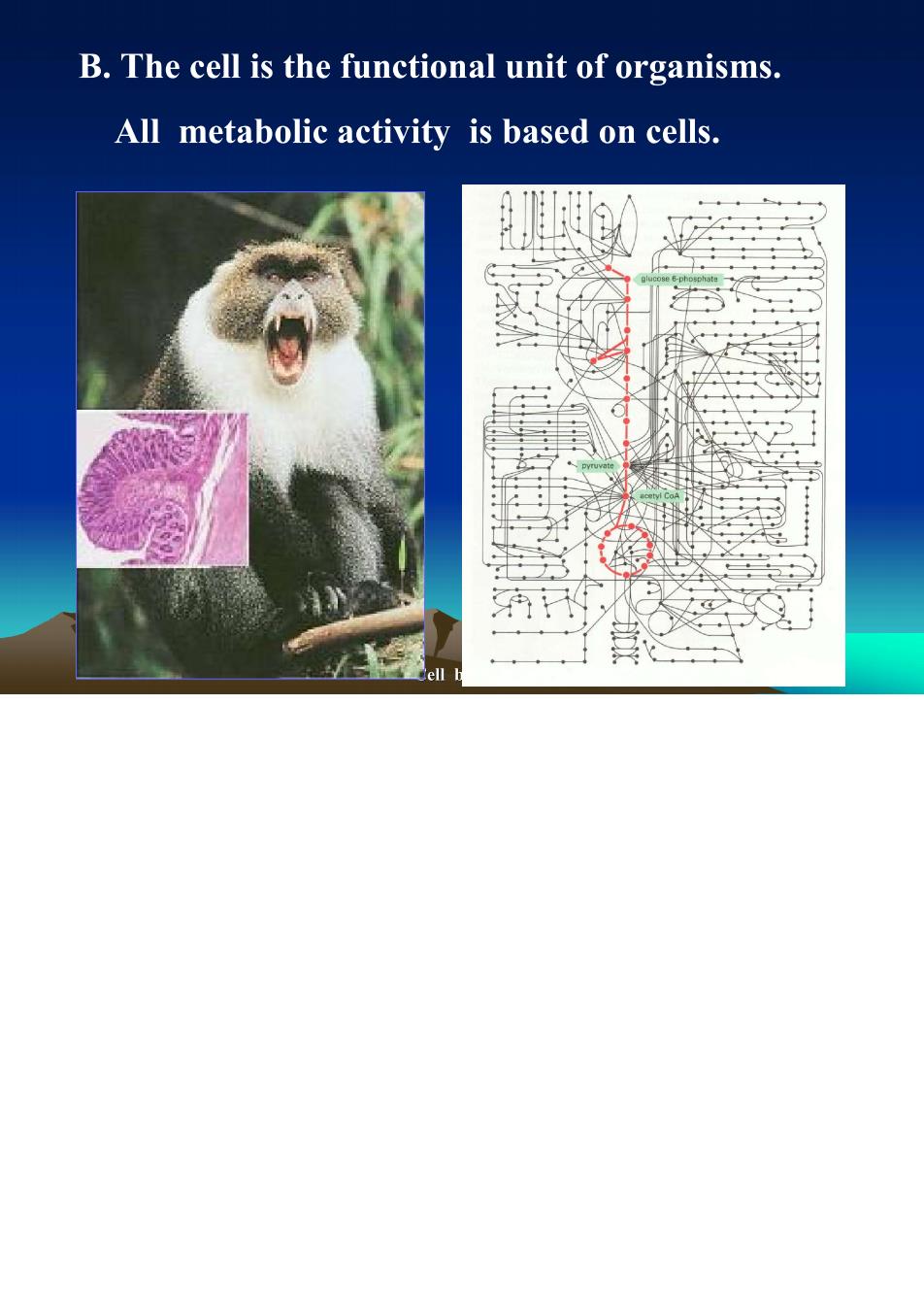
B.The cell is the functional unit of organisms. All metabolic activity is based on cells.
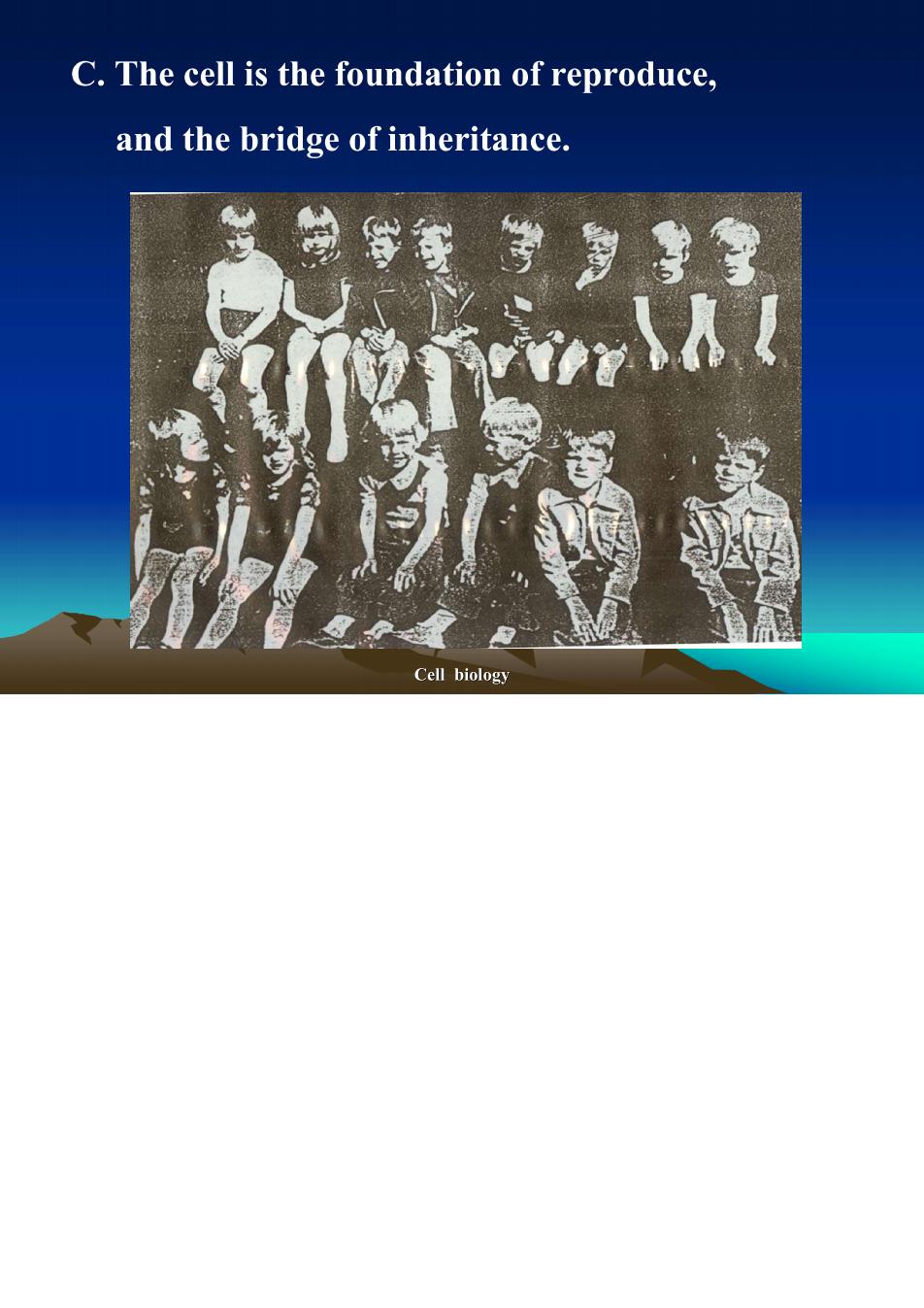
C.The cell is the foundation of reproduce, and the bridge of inheritance. Cell biology